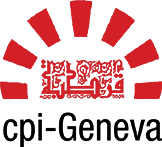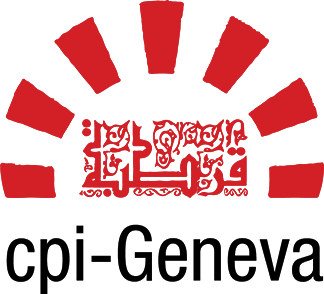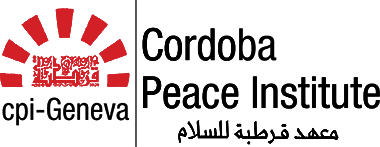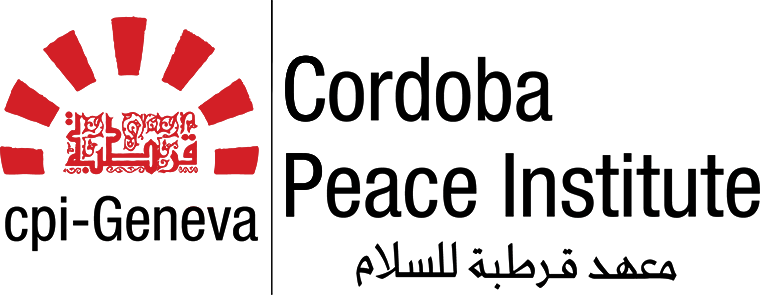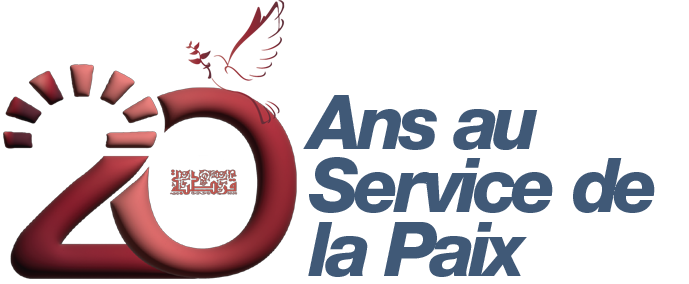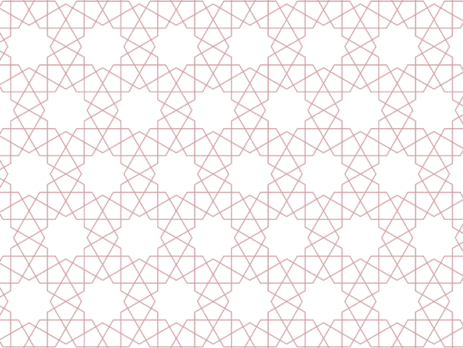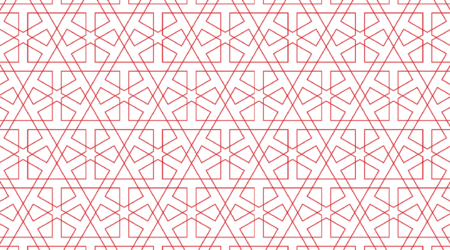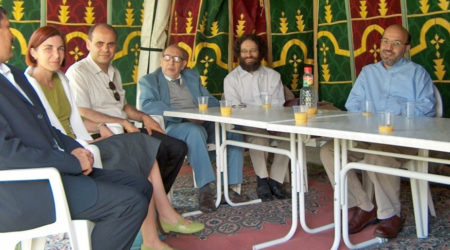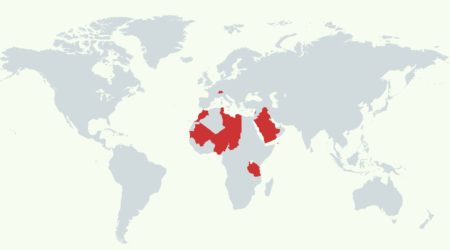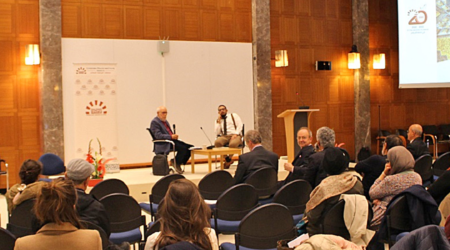Weekly Update 01-05.01.2015

1) MAROC
» 04.01.2015 : Tension entre Rabat et Abou Dhabi
Le 4 janvier 2015, le Premier Ministre marocain Abd Al-Ilah Ben Kirane a déclaré qu’il ne voulait pas faire quelque chose qui pourrait nuire aux relations entre le Maroc et les Emirats Arabes Unis. Cette déclaration fait suite à un Tweet publié samedi le 2 janvier sur le réseau social Tweeter par le Chef adjoint de la police de Dubaï « Khelfan » dans lequel ce dernier a déclaré que « dans un an ou plus les Frères musulmans au Maroc affronteront une remarquable chute ». Ben Kirane de son côté a annoncé qu’il soumettait cette attaque contre son parti et son gouvernement au roi marocain afin qu’il intervienne dans l’affaire auprès des responsables émiraties.
http://www.alquds.co.uk/?p=274581
2) LIBYA
» 20. 12-2014-06.01.2015: Libyan Crisis Chess Game
With no surprise, UNMSIL’s Libyan dialogue conference on 5 January did not take place. Hafter’s airstrikes on Misrata’s airport and port ended the divisions among Misrata leadership on whether or not to join Bernardino Leon’s dialogue meeting between Tripoli’s GNC government and Tobruk’s Abduallah Theni cabinet. In fact, even before the air raids there was tiny possibility that the UN conference would take place given the deep divisions that run through the Tobruk-based government. Hafter’s airstrikes are but one of the manifestations of that power struggle in Tobruk. It is believed that Hafter has been pushing to establish a military council that would assume presidential powers and dissolve Abdullah Theni’s government. The latter, being backed by Mahmoud Jibril’s wing, opposed Hafter’s aspirations. It was apparently in this context that Hafter, weakened by the inefficacy of his Dignity Operation, sought to undermine any potential political solution by targeting Misrata, being the strongest element of the Tripoli-based GNC government and Libya Dawn forces. The dwindling oil revenues triggered what the media has dubbed the Battle for the Oil Crescent, in reference to the ongoing confrontation to control oil terminals in the Sirte gulf. Regionally, Algiers remained determined to oppose any projects for military intervention in Libya. When the Sahel Group of Five countries called for military intervention ten days ago, Chadian president arrived in Algiers, a couple of days later, and made public statements in which he revoked his earlier calls for intervention. Algiers together with Sudan, and Morocco expressed their reserves as to the calls of the Arab League for military intervention in Libya. Algiers seems to be resolved to oppose French, Egyptian, and Gulf countries calls for intervention in Libya. It is in this context that a meeting of the Council of the Chiefs of Staff of the armies of Algeria, Mali, Niger and Mauritania (CEMOC) has opened on 6 January in Tamanrasset, Algeria.
http://www.aps.dz/algerie/16079
http://www.aps.dz/algerie/16111
3) TUNISIA
» 06.01.2015: Presidential Elections: Revolution, Counter-Revolution, and the Second Wave
The election of Beji Caid Essebsi President of Tunisia in last December’s elections motivated different readings among analysts. For some of them Essebsi’s election symbolised the “final phase of a counter-revolution that closed the Arab Spring parenthesis that was opened in 2011.” Moreover, since the first 100 days in the rule of any president are usually indicative of the new policy, Essebsi’s opponents (excluding Ennahdha who) point to the nomination of Lahbib Essid, former interior minister and head of cabinet in Ben Ali’s regime, as proof of the return of the old guard. Besides, The arrest of Yassin Al Ayari, youth activist, was sentenced to 3 years in prison for “defaming the army” on Facebook. According to those analysts, another sign of the return of the Ben Ali regime, is the absence of any reference to transitional justice in Essebsi’s first presidential speech. Other Arab thinks such as Egyptian Fahmy Hewidy thinks that Ennahdha opted for a strategic compromise in which it favoured the consolidation of a nascent democracy rather than short term political gain. However, two Tunisian academics and analysts charged Ennahdha leadership in particular with a share of responsibility in the return of the Deep State apparatus to the command. In an extremely critical op-ed of Ennahadha’s strategy, Suhil Ghanouchi, charged Ennahdha’s elite for giving in and considered that that ” does not suit those destiny elects to be national leaders to lead a revolution and make history.” For Mohamed Henid, lecturer at Sorbonne University, “the struggle is not between two candidates… but, in essence, between two ideas and projects: the project for Change and that of despotism”. Henid concluded by saying that despite all the setbacks of the revolutionary momentum the counter-revolution, in Tunisia, Egypt, Libya, and Yemen would consolidate the collective Arabs awareness of the challenges of confronting despotism and would establish the cornerstone of a forthcoming second wave of change that would sweep everything to establish real change.
http://www.hrw.org/news/2015/01/06/tunisia-blogger-convicted-military-court
http://www.aljazeera.net/knowledgegate/opinions/2014/12/22/
http://www.aljazeera.net/knowledgegate/authors/2014/11/23/
http://www.aljazeera.net/knowledgegate/opinions/2015/1/5/
4) EGYPTE
» 04.01.2015 : Refroidissement des Relations Diplomatiques entre le Maroc et l’Egypte
Suite à la qualification d’al-Sisi par une chaîne télévisée marocaine de « chef du coup d’état contre le président légitime Mohammed Morsi », les relations diplomatiques entre les deux pays se sont tendues. Le rapprochement de l’Egypte avec l’Algérie et par conséquent le soutien perçu au Polisario sont également sources de tensions selon certains observaturs.
Lien(s) pour plus d’information :
http://www.alaraby.co.uk/politics/bfffc439-1836-4c33-8bee-76b156128de9
» 05.01.2015 : Commémoration de la Révolution de Janvier
Un groupe de vingt mouvements d’opposition égyptiens appelle à un retour dans la rue, invitant le peuple à s’unir autour des objectifs qu’avait visé la révolution, au-delà des intérêts particuliers.
Lien(s) pour plus d’information :
http://www.aa.com.tr/ar/headline/445084
» 04.01.2015 : Augmentation des Violations de la Liberté d’Expression dans les Universités
Une nouvelle loi promulguée par le président égyptien Abdel Fattah al-Sisi qui donne aux forces armées la compétence de la protection des installations publiques, y compris des universités, a des conséquences significatives sur la sécurité des étudiants égyptiens. En effet, un grand nombre d’étudiants des universités de Menoufia, d’Al-Azhar, de Zagazig, et d’Alexandrie ont été renvoyés devant les tribunaux militaires, et non civils, selon cette nouvelle loi. Les activités des étudiants au sein des universités sont soumises aux attaques des forces de police et les étudiants qui y participent sont arrêtés et risquent de se voir retirer le droit de se présenter aux examens.
Lien(s) pour plus d’information :
http://www.alaraby.co.uk/society/fb9ebeec-ac4d-4727-a85d-c348dfe5d7a9
5) SAHEL
Mali :
» 04.01.2015 New Violent Incidents Threaten the Peace Process
Mali has faced an upsurge of violence over the past few weeks as a result of increased tension between armed groups from the Coordination (MNLA, HCUA and MAA) and those of the Platform (coalition of self-defence groups). Both parties are key actors of the peace negotiations that have been taking place in Algiers and that shall resume this month. Several incidents have been reported, one of them leading to the death of Aroudeyni Ag Hamatou, mayor of Anderaboucane. The latest attacks took place last Sunday and targeted the MINUSMA through one of its subcontractors. Another assault in the Northern part of the country injured 6 soldiers from the contingent of Niger from the MINUSMA. The multiplication of armed attacks by armed groups threatens the ceasefire and raises serious concerns on their will and ability to fulfill their commitments as agreed on in Algiers. Another actor might want to impose itself at the next round of negotiations, Ansar Eddine. After one year of silent, the jihadist group claimed responsibility for an attack in Tessalit againt a UN military camp on December 29.
http://maliactu.net/nord-mali-recrudescence-de-la-violence
Niger :
» 19.12.2014: The G5-Sahel Meets to Discuss Security in the Region
Niger is facing increasing difficulties to deal with the consequences of violence by Boko Haram alongside its borders with Nigeria. Young people are joining the ranks of the armed group in search of financial gains and more than 100,000 refugees from Nigeria are now seeking assistance from Niger. 3000 soldiers have been deployed to prevent incursions from Boko Haram in the country. In addition to Boko Haram, Niger must deal with threats from jihadist groups from Mali in the western part of the country and armed groups from Libya in the North. Representatives from Niger, Mauritania, Chad, Burkina Faso and Mali – the so-called G5-Sahel – met on December 19 in Nouakchott to discuss security in the region. The main objective of this group is to restore security, promote good governance and strengthen resilience from populations and the development of infrastructures. They called for the Security Council and the African Union to launch an international intervention in Libya in a view to reestablish law and order in this country.
The views and perspectives contained in the Weekly Update are from individual contributors and external sources, and do not necessarily reflect the opinions or position of the Cordoba Foundation of Geneva. The links are neither intended as an endorsement of particular publications nor the only source for the updates, but to connect to information in the public domain, for those interested in background or further details.
